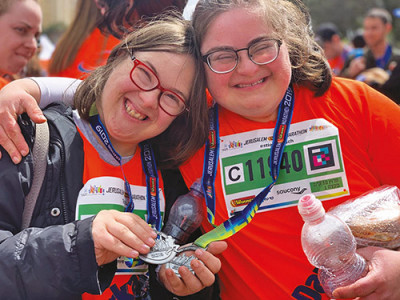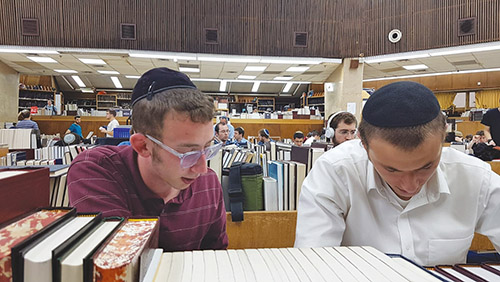
The Jerusalem Marathon is taking place March 17 and students from the Elaine and Norm Brodsky Darkaynu Program will be among the thousands of participants running this year.
Darkaynu is not your average Israel gap-year program. Established at the Ohr Torah Stone educational network by founding director Elana Goldscheider around 20 years ago, it is a program for post-high school students with special needs, neurodiversity and learning differences who also want the opportunity to spend a year in Israel, learning, growing and enjoying all that Eretz Yisrael has to offer.
For the past 10 years, students from Darkaynu have been participating in the Jerusalem Marathon, and as the director of the men’s program, Yeshivat Darkaynu’s Avi Ganz explained, “It’s something that our students are proud to do… Our goals are very simple: We want to encourage our students to go beyond what they are used to doing… outside of their comfort zone… so we take our time during the marathon and we do it our way…and that really is the story of Darkaynu both in the marathon but also in general.”
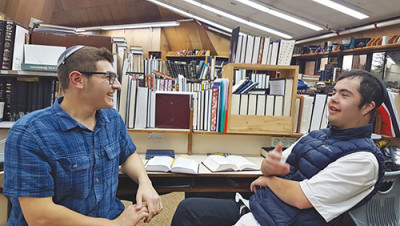
Darkaynu men’s program takes place at Yeshivat Har Etzion, and the women’s program alongside the overseas program at Midreshet Lindenbaum. Darkaynu’s schedule is designed to allow it to dovetail with their respective host programs. “That’s important because we don’t want to be a third leg. We are offering the same opportunities to our students but it doesn’t have to be exactly the same experience,” explained Ganz. This allows Darkaynu to offer a full, yet diverse, and wholly meaningful yeshiva experience.
On a typical day, Darkaynu students wake up, daven, eat breakfast with the rest of the yeshiva and then have a shiur. But after that, Darkaynu students leave campus to job sites and receive vocational training for work experience. At their jobs, students experience something real and challenging. “We find jobs and tasks that are meaningful to help develop skills but more importantly to develop as contributing members of a team and society,” Katz said.
Students receive job placements at places such as army bases, wineries, kindergartens, libraries, retail stores etc. and within two or three weeks they have established their routines. “They become part of a team and that team relies on them for their work,” said Ganz, and fills the students with a sense of pride, accomplishment and fulfillment.
When 3 p.m. rolls around, there is Mincha followed by two more classes. “These classes are focused, by and large, on living our lives in a Jewish way, which ultimately translates into Halacha, not just as a system of rules but as a common practice within the community.”
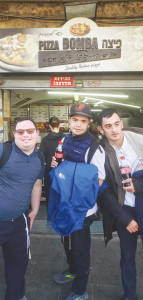
Evenings at Darkaynu are reserved for extracurricular activities that include daily chavrutot with students attending the mainstream programs at Har Etzion and Lindenbaum, Wednesday night dinner at host families, once-a-week night seder with guided learning followed by a short shiur, swimming, exercise etc.
At Darkaynu, Shabbos is spent in one of four ways: in the yeshiva, with a host family, at a shabbaton and as an “out” Shabbos where students venture out to friends or family. Ganz explained that he doesn’t want his students spending an entire year in Israel “attached” to the yeshiva. “Going out for Shabbos is part of the gap-year experience and it will help them gain the independence, skills and confidence for where they need to go, and that’s very big on our list.”
Madrichim are an essential component of Darkaynu’s program throughout the year. “The Darkaynu model of a madrich is somebody who wants to act full time as a role model and who wants to benefit from the yeshiva or midrasha experience as a leader and a giver,” Ganz said. Darkaynu madrichim wake up with the students and are there at every single transition. It is not a one-on-one role, but rather they are there to keep an eye on the students to help them stay engaged and on task.
Madrichim may eat with the students as companions at meals; they act as job coaches at work, listening to the instructions and sometimes breaking them down and then showing students how to perform their roles,; and are generally around for the students as they go about daily routines, normal struggles with friends or to help with some of the technical side of daily living.
When madrichim are not with their students, they are free to use their time however they wish. Some will learn in the beit midrash, others will attend shiurim or participate in chavrutot. Many will take online classes or just enjoy some downtime.
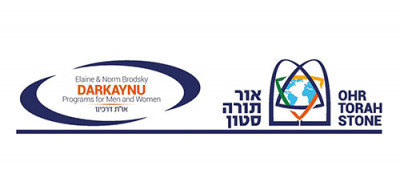
Ganz was quick to point out that it is not a madrich program but, that being said, the madrichim are a top priority. “We are their biggest fans and biggest supporters because we understand that they are signing on for something that really doesn’t fit the traditional yeshiva experience—there is nobody out there doing what they are doing and therefore we want to make sure that they can make the most of it however they want to make the most of it.”
To donate to Team Darkaynu visit www.wizathon.com/team-darkaynu.
To learn more about Darkaynu or how to become a madrich visit www.Darkaynu.org.il or email Darkaynu.y@gmail.com.
By Jewish Link Staff
